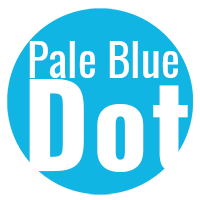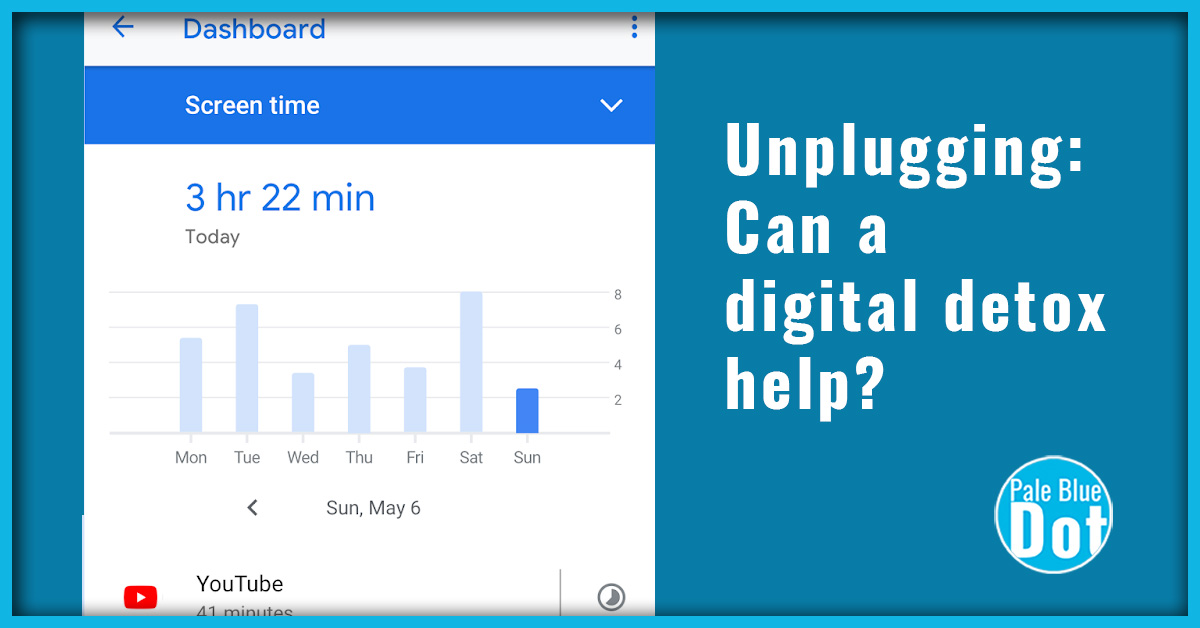How plugged in am I?
In the last post, I explained how headline stress disorder can make it very difficult to find the energy or will to take positive action. This week, I wanted to circle back to that topic, and examine one possible technique for disrupting it: a digital detox.
Let’s start by offering you a fair warning. I have been using computers since the very beginning. I was an early internet adopter. I love my devices. I am sitting right now in front of a Smart TV, playing movies on Netflix, typing on a laptop, with (I kid you not) an iPad and an iPhone sitting in the end table next to me. There’s a Fitbit on my wrist giving me a reminder that I am behind on my step count and a posture corrector on my back, zapping me every time I slouch. I am not currently a model of good behaviour. I am plugged in far too often.
These devices do not combine well with my passion: I love access to information. I can’t be left alone with the written word… I research things for fun. Having constant access to the Internet means I can chase any topic I am interested in, as far as I want. Worse still, the Internet is structured in such a way as to send me updates about all those things I have researched. A reef I once visited is dissolving due to ocean acidification. A colony of albatross I once took photos of are dying due to plastic in their bellies. The updates, reminders, e-mails, alerts, notifications, and more are not helping me. I am getting enough of them that it makes it hard to stay focussed on positive action.
I need to reduce the influx of negative headlines to clear out some mental space and energy to actually create change.
What is a digital detox?
We’ve lost control over how we let tech into our lives. I’m not the only one. Today, I’m going to help you explore ways that you can try a “digital detox”, which means that you voluntarily refrain from using digital devices such as smartphones, computers, and social media platforms in whole or in part. “Detoxing” from digital devices can help you focus on real-life social interactions without distractions. By forgoing digital devices, at least temporarily, people can let go of the stress that stems from constant connectivity.
Before we look into how we could tackle a digital detox, let’s examine why you might want to give it a try.
Do you get anxious or stressed out if you can’t find your phone?
Are you compelled to check your phone every few minutes?
Does social media preoccupy your mind, worrying about how often your content was liked or shared or why everyone else’s lives look so perfect in Instagram?
Are you worried about missing something while you’re offline, or staying up late / getting up early to check out what’s happening online?
Can you concentrate on what you’re doing without having to check your phone?
Health Effects of Technology Addiction and Overuse
There are some downsides to the technology we have let into our lives. There are negative health effects to our minds, our bodies, and the relationships we have with those around us.
| Physiological Health Effects | Psychological Health Effects | Relationship Health Effects |
|---|---|---|
|
|
|
So how can I make some changes?
Let’s start with some ground rules. I am not advising that you give up the Internet. It’s not practical. It has its uses. That being said, there are some real advantages to finding ways to control when you use it it, what you use it for, and how long you use it each day. Once we clear out some space free from those devices, we can work on applying that time to more constructive purposes.
I’m going to give you a long list of things to try. Let me be clear: even using SOME of these tricks has benefits. By no means do you need to quit cold turkey. Detaching from your devices can benefit your mental well-being, but doing a digital detox does not have to involve a complete separation from your phone and other tech connections. The process is often more about setting boundaries and making sure that you are using your devices in a way that benefit, rather than harm, your emotional and physical health.
So, let’s be reasonable about this:
- Don’t set unachievable targets. Changing behaviours isn’t easy, so this isn’t the time to go big and bold. Don’t say you’ll give up Instagram all at once… start by limiting it to only a set number of minutes per day. If you can do that, then you can add more limits (only certain days of the week, or a shorter time per day);
- Commit to changing one habit at a time, and wait a week before trying the next one. It takes time and repetition to build new habits;
- Consider finding a detox buddy. It’s helpful to have someone to discuss this with, sharing stories about what is working and what is not. If you try one of these ideas and it doesn’t work, it is helpful to have a buddy to help you stay motivated; and
- Accept that not all of these ideas are good for everyone in all circumstances. You know your life and your needs. Approach this exercise with an open mind, but accept that the goal isn’t to cut the number down to zero: it is to limit Internet consumption to where it still benefits you, and limit mindless exposure that leaves you drained and discouraged.
I’m ready for the list of things to try. Give it to me.
- Go through your friends list. Are all of these people really your friends? Consider trimming the list to the people you really connect with. Maybe leave some as friends, but stop following their updates for a while.
- Unsubscribe from mailing lists and feeds that you aren’t really using any more.
- Sadly, “fake news” is a real thing. Not all sources on the Internet deliver high quality, fact-checked information. If you have a list of sites that you have been tricked into visiting in the past via click bait, maybe now is the time to make a commitment to simply never visit them again.
- Use the Block Caller feature on your phone for all those telemarketers.
- Can you do without a social media platform? Are any of them consuming time, but not adding anything positive to your life? Consider cutting it out of your life, either permanently (cancelling your account) or temporarily (deleting the app, logging out of the app).
- Make a commitment to tune out advertisements on all platforms. If you can’t turn them off in the settings, make an active effort it ignore those portions of the page. If you wanted to buy something, you would be shopping.
- If you want to learn about a topic, take the time to really learn. Go beyond a blog posting (even this one!) and do your own research. Think critically about the content, and be critical about the site and person the supplies it to you. Consider taking a course on critical thinking and the Internet… it’s a learned skill to navigate the Internet without constantly soaking up misinformation.
- Never while driving. It’s dangerous and illegal. Some phones have a special variant of the Do Not Disturb mode for driving that can be enabled.
- Never while walking. It’s dangerous.
- Not for an hour before sleeping. This will help you fall asleep easier, and slip into a deeper sleep state sooner, meaning you will wake more rested.
- Put your devices on Do Not Disturb or Airplane Mode at night.
- Not while there are friends over to visit. They came to see you, the Internet can wait.
- When there is family in the room. On your deathbed, you won’t be wishing you had spent more time on Twitter, Facebook, and other social media.
- Pick a specific time to disconnect (e.g. an hour in the morning, when you first get home after work) and spend that time focusing on an activity you enjoy.
- Rather than checking certain apps or websites multiple times a day, or each time there is a notification, consider setting aside a specific time each day and/or days when you’ll check your messages or mentions (e.g. Twitter can have 5 minutes in the morning; LinkedIn can have 15 minutes once a week in the evening; Pinterest can have 10 minutes at night twice a week).
- Make all meals an internet-free zone. You will enjoy the food more, and as a great side effect, you’ll get full faster.
- Never use cellphones, tablets, or laptops in bed before sleeping. If you have been using your cell phone as an alarm, get an old fashioned alarm clock.
- Limit the type of Internet use to specific contexts (e.g. read news in the morning; check Twitter at lunch; restrict YouTube, Facebook, Instagram, and Pinterest to when you are at home).
- At work, ban cell phones and laptops from meetings (other than the presenter). Focus on the content being delivered by the human you came to see, and participate actively.
- One device at a time. If you’re on the laptop or tablet, leave the phone alone unless it actually RINGS.
- Try limiting HOW you use your smart phone (e.g. only for incoming calls or outgoing calls for a certain duration per day)
- Turn off push notifications. Many social media apps including Facebook, Instagram, Twitter, Pinterest, and news websites send alerts every single time you get a message, mention, or new post. These notifications constantly interrupt what you’re doing, distracting you from enjoying yourself in the moment. Almost none of these notifications are really that urgent. Think about it: is it really likely that in the event of an emergency, Pinterest or Instagram are the way you’ll be notified?
- If you are using a device to play music while you are working out, put it on Airplane Mode or Do Not Disturb until you’re done. Treat it like a radio: you don’t need the distractions while you are
- Convert to black and white. One reason our devices are so alluring is that they’re vibrant. Many smartphones now allow you to change the settings so the entire phone appears in gray scale.
- There are apps that can limit how long you spend on various forms of social media. (e.g Apple Screen Time; Google Android WellBeing; Your Time on Facebook/Instagram)
Conclusion
There are many ways to use the Internet in a more thoughtful, measured way. Try a few of the techniques listed on this page. It should clear out some time and mental space. Once you have that time and space, USE IT. Create positive change in your lives, and in the lives around you. Apply that time to creating memories you will treasure.


Leave a Reply